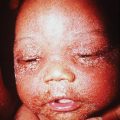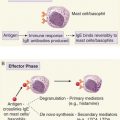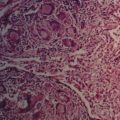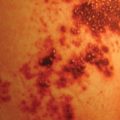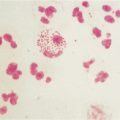CASE 51
KL is a 20-year-old first-year medical student who is visiting you for the fifth time in 4 months, with evidence of a viral-type respiratory infection. He has previously been a healthy individual, has all his vaccinations up to date, and has not traveled out of the country. He admits to finding his course study load “tiring and difficult” and has had to stay up at night on at least one occasion each week over the last month to prepare for tests. His roommate is well. His weight is stable. He is currently afebrile, with a dry cough. You order routine blood work and a chest radiograph, with all results returning as normal. What is the potential pathophysiology of this problem? What might you do about it?
QUESTIONS FOR GROUP DISCUSSION
1. Many animal studies, designed with a goal of defining the effect of stress on immune responses, used adrenalectomy as a variable to analyze behaviorally induced changes in immunity. Provide a rationale for this approach.
2. Sleep deprivation in rodent models has led to both increased levels of corticosterone and significant changes in immune responses. How would you explain the fact that there is little evidence to suggest a correlation between immune dysfunction and altered serum corticosterone levels in these animals?
3. How would you rationalize the fact that cortisol levels are increased in both acute stress and chronic stress yet many reports indicate that acute stress enhances the immune system but that chronic stress is immunosuppressive.
4. In human studies, low levels of endotoxin lead to increased levels of cytokines (interleukin [IL]-1, IL-6, and tumor necrosis factor [TNF]). IL-1 and TNF are proinflammatory cytokines. Review the inflammatory process and discuss the role of these cytokines in the recruitment of cells to sites of infection or trauma.
5. In human studies (see question 4), low levels of endotoxin also lead to increased levels of cortisol. How would you explain the fact that cortisol, which has been shown to be an anti-inflammatory agent, does not abrogate the inflammatory effect of IL-1 and TNF?
6. Evidence has now accumulated for stress-associated changes in chemokine/cytokine levels, which may underlie some of these observed changes in cell migration. What cytokines are required for increased transmigration? Which chemokines are required to recruit monocytes and neutrophils into tissues?
7. A number of studies conducted on asymptomatic HIV-positive subjects before and after notification of HIV-1 antibody status measured immune system function in patients that were or were not involved in regular aerobic exercise or group, cognitive, or behavioral modification. Those who participated in interventions had lower or minimal decreases in immunologic parameters compared with controls. Describe a model that would explain this phenomenon.
